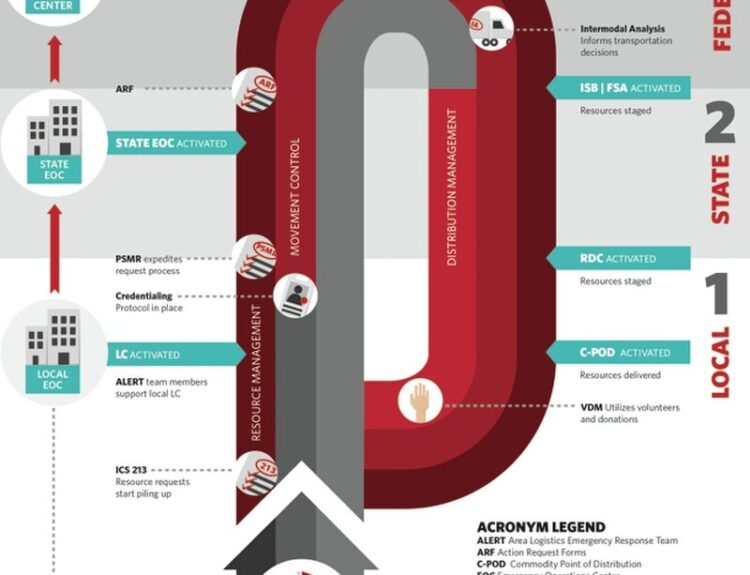Tax credits and industry growth drive sustainable aviation fuel
- New rules give boost to agriculture companies and refiners for green jet fuel
- Tax credits worth up to $1.75 per gallon for qualifying biofuels
- Sustainable aviation fuel industry just getting started
- ADM and other ag companies have plans to produce sustainable aviation fuel
- Traditional fossil fuel refinery companies also working on clean jet fuel
- Sustainable aviation fuel can decarbonize travel
- Biden administration sets target of three billion gallons of clean jet fuel by 2030
- Tax credit system considered less environmentally stringent
- Concerns raised about potential negative environmental impacts
- Clean jet fuel more expensive than dirty kind
- Europe mandates use of clean jet fuel, causing industry to grow faster
- U.S. government hasn’t announced mandates, but idea isn’t off the table
- As industry scales up, price of clean jet fuel should become more cost-competitive
The federal government has outlined new rules that will give a boost to agriculture companies and refiners in the production of green jet fuel. The rules include tax credits worth up to $1.75 per gallon for qualifying biofuels, such as corn-based ethanol and fuel made from soybeans. This move is expected to support the growth of the sustainable aviation fuel industry, which is just getting started. Ag companies like ADM have plans to produce sustainable aviation fuel, and traditional fossil fuel refinery companies are also working on clean jet fuel. Sustainable aviation fuel can help decarbonize travel and reduce greenhouse gas emissions from airplane flights. The Biden administration has set a target of three billion gallons of clean jet fuel by 2030, and tax subsidies are being used to incentivize private companies to develop the market. However, there are concerns about the environmental impact of the tax credit system, which is considered less stringent than other methods. Environmental groups worry that it could encourage unsustainable practices and deforestation. Despite the subsidies, clean jet fuel is currently more expensive than traditional jet fuel. In Europe, airlines are mandated to use clean jet fuel, leading to faster industry growth but higher costs for consumers. The U.S. government has not announced mandates, but it remains a possibility. As the clean jet fuel industry scales up, the price is expected to become more cost-competitive.
Public Companies: ADM (null), Neste (null), Calumet Specialty Partners (null), Phillips 66 (null), Valero Energy (null)
Private Companies: undefined
Key People: Tom Vilsack (Secretary of Agriculture), Mark Brownstein (Senior Vice President at the Environmental Defense Fund)
Factuality Level: 7
Justification: The article provides information about the new rules outlined by the Treasury Department regarding tax credits for biofuels. It mentions the potential of the sustainable aviation fuel industry and the plans of agriculture companies to produce green jet fuel. It also discusses the environmental concerns raised by some groups and the current state of the clean jet fuel industry. The article provides some statistics and quotes from officials. However, it lacks in-depth analysis and may benefit from more balanced reporting.
Noise Level: 6
Justification: The article provides information on new rules that could boost agriculture companies and refiners in producing green jet fuel. However, it also includes concerns raised by environmental groups about the low standards of the rules. The article mentions existing clean jet fuel makers and plans of ag companies to produce sustainable aviation fuel. It also discusses the environmental impact of airplane flights and the potential of sustainable aviation fuel to decarbonize travel. The article mentions the production target set by the Biden administration and the tax subsidies included in the Inflation Reduction Act. It also highlights the concerns of environmental groups about the less-stringent guidelines and the potential negative consequences of promoting certain crops for fuel production. The article mentions the higher cost of clean jet fuel compared to traditional jet fuel and the mandates in Europe. It also mentions the slower adoption of cleaner fuels by U.S. airlines and the possibility of future mandates. Overall, the article provides relevant information on the topic but lacks in-depth analysis and scientific rigor.
Financial Relevance: Yes
Financial Markets Impacted: Agriculture companies, refiners, biofuels companies
Presence of Extreme Event: No
Nature of Extreme Event: No
Impact Rating of the Extreme Event: No
Justification: The article discusses new rules that will benefit agriculture companies and refiners in their efforts to produce green jet fuel. While there is no mention of an extreme event, the information is relevant to financial markets as it pertains to the biofuels industry and potential tax credits.
 www.marketwatch.com
www.marketwatch.com 





